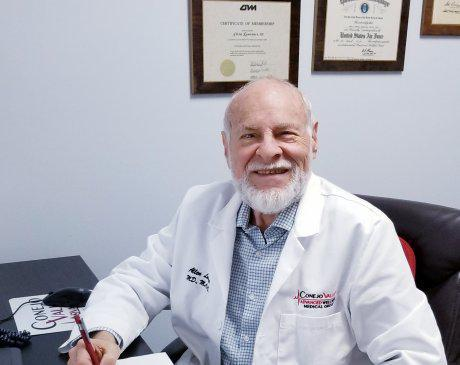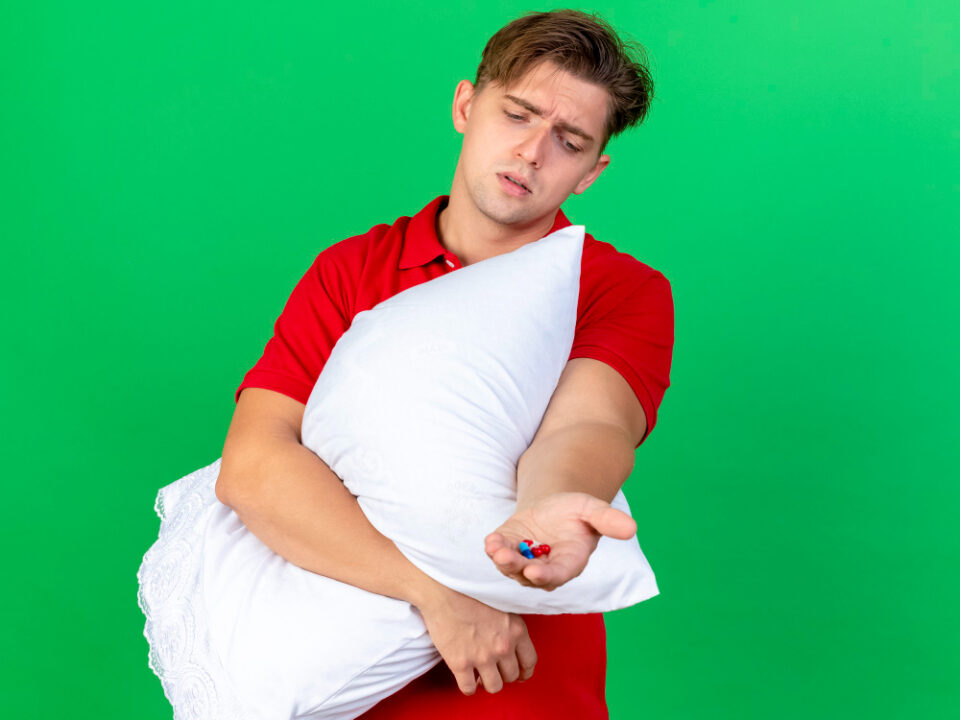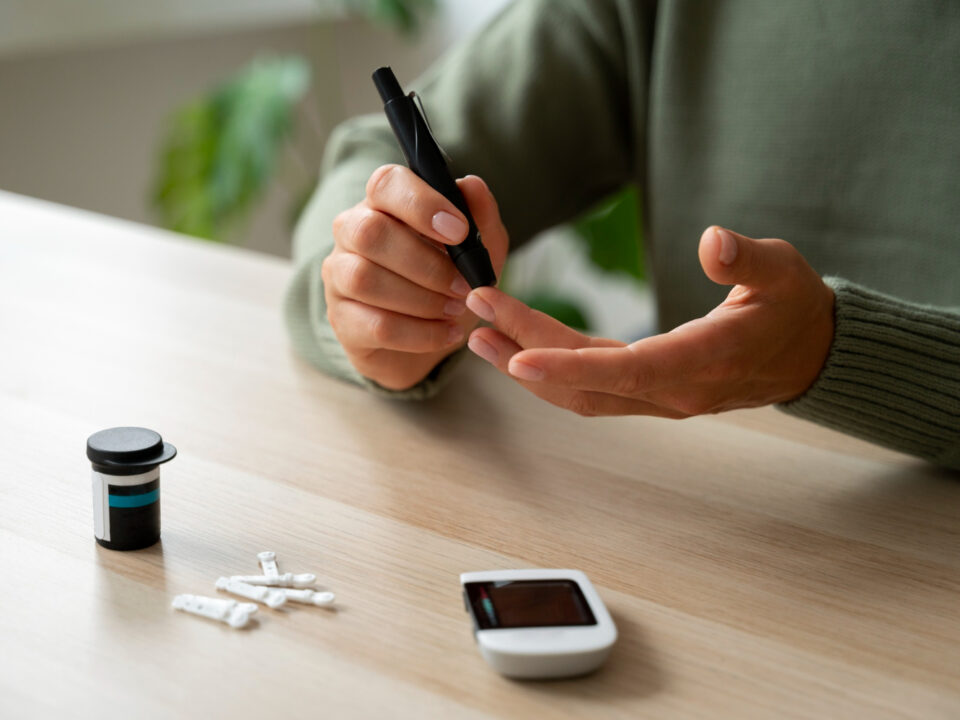- 21103 Vanowen St Woodland Hills, CA 91303 | Call us today!
- 310-879-9266
Understanding Testosterone and Erectile Function and Dysfunction

Testosterone, the key male sex hormone, is a fundamental component of male sexual health. It plays a vital role in regulating libido (sexual desire) and erectile function. When testosterone levels dip below normal, it can lead to a host of issues, including decreased libido and erectile dysfunction (ED). These problems not only affect a man’s physical health but also his emotional well-being and intimate relationships with girlfriend, boyfriend partner or spouse. This can, if nor dealt with and corrected lead to frustration, anger, unhappiness, separation even alienation and/or divorcee. Lots of unhappy problems.
The Impact of Decreased Libido
Decreased libido can be a distressing experience for any man. It can and often does lead to feelings of inadequacy, frustration, and decreased self-esteem. Any time a man find himself less interested in sexual activity, this can be confusing and concerning, particularly if he previously had a healthy sex drive. This change then can lead to anxiety and depression, creating a vicious cycle that further impairs his sexual function.
The effects of decreased libido extend beyond the individual. Partners may feel rejected or undesired, this can then lead to emotional distress and tension within their relationship. Misunderstandings may arise, wherein partners often misinterpreting their lack of sexual interest and desire as a lack of affection or change in their level of commitment. This may then lead to strained communication and emotional distancing, which further compounds the problem, sometime bringing it to a point when it can never be resolved.
Causes of Decreased Libido
Several factors can contribute to decreased libido, and understanding them can help in finding an appropriate solution.
Hormonal Imbalances:
One very common problem is low testosterone (LowT) levels (hypogonadism), this is a common cause especially as men move into their late forties and into their mid-fifties. This occurs because of aging, but can occur because of chronic illnesses, or conditions affecting either the testes or the individual’s pituitary gland.
Psychological Factors:
Another common reason is issues relating to mental, emotional and/or spiritual health such as stress, anxiety, and depression, conflict of self-image or self-love, midlife crises. These can significantly impact sexual desire and lead to relationship problems, which then leads to poor communications which exacerbates everything.
Medications:
Certain medications, including antidepressants, antihypertensives (blood pressure medications), even opioids, or other illegal drugs can lead to a reduction in libido as a common side effect.
Lifestyle Factors:
A whole lot of issues related to poor diet, lack of exercise, excessive alcohol consumption, and smoking can negatively affect sexual health.
Chronic Illnesses:
Conditions such as diabetes, obesity, cardiovascular disease, and sleep apnea can affect testosterone levels and sexual function.
All of the issues discussed above are reversible and can be treated it the individual looks for and/or asks for help. Nothing can be done; all of these can become chronic unresolvable problems is the individual never seeks help or refuses to listen to friends and family that are trying desperately to help him
Solutions and Treatments
Addressing decreased libido and erectile dysfunction often requires a multifaceted approach. Once again all of the above and their solutions require that they are recognized, thought bout and that the individual wants to do something to help himself. If not, there can be no easy solution. One recognized and depending on how long the problem has existed and how entrenched it is, there are solutions available. This solution may at times have one or more associated risks and/or benefits:
- Testosterone Replacement Therapy (TRT):
- Benefits: TRT can often help restore normal testosterone levels, if the problem is LowT, then TRT can improve libido, increase lost energy, stabilize chaotic mood, and deal with and resolved erectile dysfunction. TRT can be administered through injections, patches, gels, or pellets. Injection is the very most reliable method for using TRT.
- Risks: Potential side effects include an increase in red blood cell count (erythrocytosis), prostate issues, cardiovascular risks, and exacerbation of sleep apnea. Regular monitoring by a healthcare provider is essential and most negative side effects can be eliminated or reversed simply by adjusting or better regulating the dosage of the TRT.
- Non-Testosterone Hormone Therapy
- Medications: For men with specific hormonal imbalances (other than low testosterone), such as thyroid dysfunction or hyperprolactinemia, addressing these conditions with appropriate medications can improve ED
- Dehydroepiandrosterone (DHEA): DHEA is a hormone that is naturally produced by the adrenal glands. Some studies suggest that DHEA may help improve erectile function, particularly in men with ED related to low levels of this hormone. However, the evidence is not conclusive, and DHEA supplementation is not universally recommended as a treatment for ED. DHEA can have side effects and interact with other medications or health conditions.
Medical Treatments for ED
- Phosphodiesterase Type 5 (PDE5) Inhibitors
- Medications: Sildenafil (Viagra), Tadalafil (Cialis), Vardenafil (Levitra), and Avanafil (Stendra) are commonly prescribed PDE5 inhibitors. These medications enhance the effects of nitric oxide, a natural chemical the body produces to relax muscles in the penis, increasing blood flow and enabling an erection in response to sexual stimulation.
- Benefits: These medications enhance blood flow to the penis, facilitating erections. They can be very effective for many men with ED.
- Risks: Side effects may include: headaches, flushing, nasal congestion, and, rarely, vision or hearing changes. They are contraindicated in men taking nitrates for heart conditions.
- Lifestyle Modifications
- Diet: A balanced diet rich in fruits, vegetables, whole grains, and lean proteins can improve overall health and reduce ED symptoms.
- Exercise: Regular physical activity, particularly aerobic exercise, can improve cardiovascular health and blood flow, reducing ED symptoms.
- Weight Management: Maintaining a healthy weight can prevent and reduce ED symptoms, particularly in men with obesity.
- Smoking Cessation: Quitting smoking improves blood flow and overall health, which can reduce ED symptoms.
- Limiting Alcohol Consumption: Reducing alcohol intake can improve sexual function and reduce ED.
- Benefits: Weight loss, regular exercise, a healthy diet, smoking cessation, and reduced alcohol can improve overall health and testosterone levels.
- Risks: Generally low risk, though these changes require commitment and sustained effort. The benefits extend beyond sexual health, improving overall well-being.
- Psychological , Emotional, Educational Counseling:
- Therapy: Counseling or therapy with a psychologist or psychiatrist can help address psychological causes of ED, such as stress, anxiety, depression, or relationship issues.
- Cognitive Behavioral Therapy (CBT): CBT for erectile dysfunction is a structured, time-limited
- psychotherapy that focuses on identifying and changing negative thought patterns and behaviors that contribute to ED, aiming to improve sexual function and reduce anxiety.
- Cognitive Behavioral Training (CBTr): CBTr for erectile dysfunction is a therapeutic approach that combines cognitive restructuring with behavioral exercises, education and training on what and how to help the individuals develop and begin to use healthier thought patterns and coping strategies to improve sexual performance and reduce sexual and other stress.
- Sex Therapy: Working with a therapist specializing in sexual health can help address performance anxiety and other sexual concerns.
- Benefits: Addressing underlying psychological issues, unresolved conflicts, and improving communication between partners can enhance sexual desire and relationship satisfaction. Therapy, CBT and CBTr can help manage stress, anxiety, and depression and allow the individual or couple to function better.
- Risks: The main risk is the time commitment and the need for a supportive environment. Some men may initially feel uncomfortable discussing intimate issues, dealing with their emotions or problem solving.
- Vacuum Erection Devices (VEDs):
- This is a mechanical device that acts to create a vacuum around the penis, this promotes drawing blood into the corpora cavernosa in order to induce an erection. A constriction ring is then applied at the base of the penis to maintain the erection.
- Benefits: These non-invasive devices create an erection by drawing blood into the penis using suction. They can be effective for men who either cannot take oral medications or get optimal results with other alternative methods.
- Risks: Possible side effects include bruising and discomfort. It may take practice to use the device effectively. It may for some individuals feel to mechanical and reduce or eliminate spontaneity.
- Penile Injections and Intraurethral Suppositories:
- Medications:
- Alprostadil (Caverject, Edex), Papaverine, and Phentolamine can be injected directly into the penis to induce an erection. These medications work by relaxing blood vessels and increasing blood flow to the penis.
- Alprostadil can also be administered as a suppository placed into the urethra (MUSE – Medicated Urethral System for Erection). It is inserted into the urethra to stimulate blood flow and achieve an erection.
- Benefits: Alprostadil injections or suppositories can directly induce an erection. They can be a good option for men who do not respond to oral medications.
- Risks: Pain at the injection site, risk of prolonged erection (priapism), and urethral irritation and discomfort are the potential side effects of the urethral suppository. Proper training is required to administer these treatments safely.
- Medications:
- Penile Implants:
- Penile implants for erectile dysfunction (ED) are surgically placed devices within the penis that allow men to achieve an erection; they come in two main types:
- Inflatable implants, which can be pumped to create an erection and deflated afterward, and
- Malleable (or semi-rigid) rods, which can be manually adjusted into position for intercourse.
- Benefits: Surgical implants provide a permanent solution for severe ED. They have high satisfaction rates among men and their partners.
- Risks: Surgical risks include infection and device malfunction. Recovery time is required post-surgery.
- Penile implants for erectile dysfunction (ED) are surgically placed devices within the penis that allow men to achieve an erection; they come in two main types:
- Vascular Surgery:
In rare cases, surgery can be performed to repair blood vessel blockages or leaks that cause ED.
Non-Testosterone Alternative Methods for Treating ED
There are several non-testosterone alternative methods for treating erectile dysfunction (ED), depending on the underlying cause of the condition. Here are some common options:
- Acupuncture: Some men find improvement in ED symptoms with acupuncture, though scientific evidence is limited.
- Herbal Supplements: Supplements like Ginseng (Panax ginseng, particularly Korean red ginseng), Maca (Lepidium meyenii), Yohimbe (Pausinystalia yohimbe), Horny Goat Weed (Epimedium), Ginkgo Biloba, Tribulus Terrestris, L-Arginine (an amino acid, sometimes categorized with herbal supplements due to its natural occurrence in plants), Ashwagandha (Withania somnifera), Fenugreek (Trigonella foenum-graecum), Saw Palmetto (Serenoa repens), Muira Puama (Ptychopetalum olacoides), Damiana (Turnera diffusa), Tongkat Ali (Eurycoma longifolia) have been used, however, their effectiveness and safety are not well-established and should be approached with caution. I suggest if you would want to choose to use herbal supplements, consult a skilled herbalist or naturopath. Do not use them without help, especially if you take any other medications.
- Vitamins and Minerals:
- Vitamins:
- Vitamin D: Low levels of vitamin D have been linked to ED. Supplementation may help improve erectile function in men with a deficiency.
- Vitamin B3 (Niacin): Niacin can help improve blood flow and reduce inflammation, which may benefit men with ED, especially those with high cholesterol.
- Vitamin B9 (Folic Acid): Folic acid is involved in nitric oxide metabolism, which is crucial for erectile function. Some studies suggest that folic acid supplementation may improve ED.
- Vitamin C: Vitamin C is an antioxidant that can help improve blood flow and nitric oxide production, potentially benefitting erectile function.
- Minerals:
- Zinc: Zinc is important for testosterone production and overall sexual health. Low levels of zinc have been associated with ED, and supplementation may help in cases of deficiency.
- Magnesium: Magnesium plays a role in cardiovascular health and blood flow. Some research suggests that magnesium deficiency may be linked to ED.
- Selenium: Selenium is an antioxidant that supports overall health, including reproductive health. Some studies suggest it may benefit men with ED.
- All of these vitamins and minerals are easily available over the counter. Use them at recommended dosages.
- Vitamins:
- Pelvic Floor Exercises:
- Kegel Exercises: Strengthening the pelvic floor muscles through Kegel exercises can improve erectile function in some men. Ask we can give you a handout for doing Kegel Exercises.
- Shockwave Therapy:
- Low-Intensity Extracorporeal Shockwave Therapy (LI-ESWT): This is a newer treatment that uses shockwaves to improve blood flow to the penis and is being studied for its effectiveness in treating ED.
It’s important for men experiencing ED and who wish to use TRT to consult a Hormone Replacement specialist. If you feel you have a more complicated problem, than a Urology or Neurology consult may be requires in order to determine the underlying cause or causes and obtain appropriate treatment. You should always consider a comprehensive approach one that addresses both physical and psychological factors, this more often yields the best results.
Decreased libido and erectile dysfunction are complex issues that can significantly impact a man’s life and his sexual and non-sexual relationships. Understanding the role of testosterone and the various factors contributing to this condition is crucial for effective management. A comprehensive approach, involving medical treatments, lifestyle changes, and psychological support, offers the best chance for restoring sexual function and improving quality of life.
Open communication between partners and healthcare providers is vital. By addressing these issues proactively and collaboratively, men and their partners can find solutions that enhance their sexual health and relationship satisfaction. It is essential to consult with healthcare providers to develop a personalized treatment plan that balances benefits and risks, ensuring the best possible outcomes.

Article by Dr. Allen Lawrence, M.A., M.D., Ph.D.




